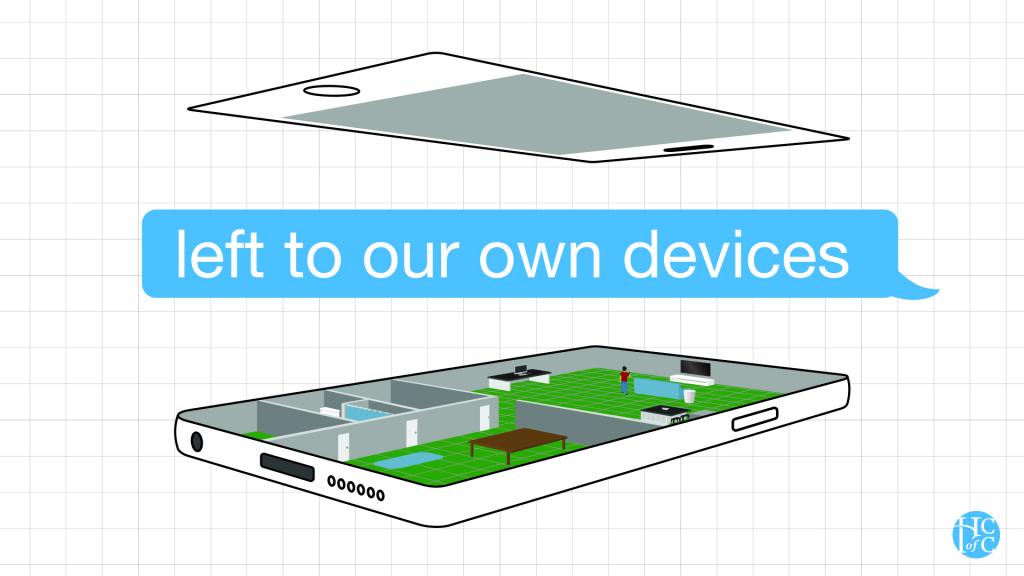
“As President, I believe that robotics can inspire young people to pursue science and engineering. And I also want to keep an eye on those robots, in case they try anything.” -Barack Obama
In the Winter of 2007, Dr. Robert Epstein, a renowned psychologist, subscribed to an online dating service where he met a Russian woman named Ivana.
They began corresponding with one another, and that eventually led to them writing long letters in which he told her about his childhood and she shared with him what her daily life was like. Eventually they began to write about their growing feelings for one another.
After months and months of this, something began to feel off. Dr. Epstein realized that something was off. And that’s when he discovered that he, an accomplished scholar in human behavior, had been exchanging love letters for over four months…with a computer program.
Selling Magic
On January 9th, 2007, Steve Jobs stood on a stage in California and told the world about a magical new device.
With all the charm and charisma he could muster, he told us about how, unlike devices of the past, this one wasn’t going to use a stylus or a pen, but would use the best pointing device in the world, and the one that we all have 10 of. Our fingers.
Jobs went on to describe the way that we could do multi-touch, swipe, zoom in, take pictures and video and when he got to how the Iphone was also an Ipod, Jobs described how you can now touch your music.
Behind all the shock and awe of this initial conference was one giant, implicit promise: “This will give you a better life than you have.”
I remember watching the video of the conference at least 5 times.
On the very first day that the Iphone was available to the general public I stood in line for over an hour to buy one.
I’m what you call an early adopter when it comes to technology.
Growing up my dad was a TV repairman and so one of the things me and dad have always liked doing is going to places like Best-Buy and just gaze in wonder at the new kinds of technology.
When I first got my Iphone I showed it to my dad and we ooohhhed and awed over it for hours. I think that for most of us, after having a smart phone, or Ipad in our lives for over a decade, have forgotten how magical it was when we first held it. How enchanting it was and how full of wonder we were when we first used it.
And to be clear, I’m genuinely grateful for all the ways that the iPhone has added convenience and opportunities to my life. I still find myself impressed by whatever the latest technological advancement is.
But one more thing.
The Idolatry of Technology
At the same time that Steve Jobs was telling the world about how magical this new device was, he was actively shielding his kids from actually using these digital wonders. Why?
Because Steve Jobs was a visionary, he saw the future, and he knew then, what many of us are starting to wake up to now.
While these devices have a great benefit to our lives, they also bring with them a tremendous downside. We have, for the past 11 years, signed up for a grand social experiment. We have wandered into unchartered territories ethically and morally. There’s not a lot of ancient wisdom on how to use an iPhone.
Or so it first appears.
So for the next few weeks, Jovan Barrington and I are going to be doing both a sermon series and a blog series together about this.
We think it’s urgently needed and important to reconsider what happens when we uncritically use and abuse our devices, and for us to reconsider what does it mean to live a good life today?
Because c’mon, don’t we all realize that somehow this whole thing has gone sideways?
In the past 11 years, we’ve been told we would be more connected by our devices, but we’re more lonely than ever. We’ve been told we would be safer, but we’re more anxious than ever.
We’re distracted, irritiable, self-focused, and increasingly hostile to anyone who dares to think differently than us on something.
There’s a phrase that happens a few times in the Bible. It’s a description of Idolatry. When Israel is going after other gods, God warns them repeatedly, but eventually God relents and gives them what they want.
What I find interesting is how the Bible describes that.
Like in Psalms 81 God tells Israel:
But my people would not listen to me;
Israel would not submit to me.So I gave them over to their stubborn hearts
to follow their own devices.
In the Bible the worst thing God can do is give us exactly what we want. Mainly because what we want in the short term often undermines what we really want in the long term.
I think it’s a fair question to ask ourselves, after this grand social experiment that’s happened over the past decade, do we like the people we are becoming? Do we like the world we are creating?
Because, and this is why I opened with the story about Dr. Epstein, I believe that it’s a parable for all of us living within this technological I-revolution.
We are after some real and good and beautiful, we want to love and be loved, and what we find on the other end isn’t community and connection, instead it’s a beautiful machine that is built to sell.
The nature of idolatry is to take away the very thing it’s promised to give you. And it doesn’t take a theologian to realize that’s happening in many people’s life because of their relationship with their technology.
So it’s time to reconsider our devices. For some of us, it may even be time to consider leaving them.









